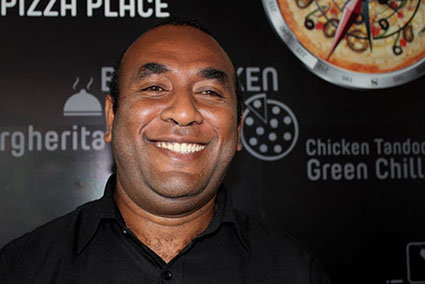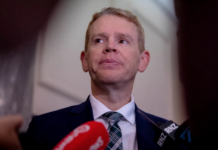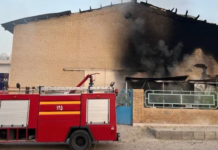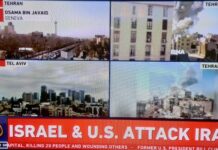Report by Pacific Media Centre –
By Kai Ping Lew in Suva
Despite trials of various individuals charged with sedition in Western Fiji, life goes on as normal in the capital city, Suva, the hub of the country.
But beneath the surface there is some concern among businesses, students, and the public about the potential effects of any escalation of political unrest.
Seventy people have been arrested in the Ra province on charges of sedition and inciting communal antagonism.
Of those arrested, 43 were charged with undergoing military-style training for the formation of a Christian state.
Prime Minister Voreqe Bainimarama has stressed to the public that sedition is a serious offence, and that the Fijian authorities will mete out justice to anyone involved.
He added that the Fijian government could only serve the citizens if there was stability and confidence in its future.
Opposition SODELPA leaders Ro Teimumu Kepa and Ratu Naiqama Lalabalavu were quick to point out that Bainimarama himself seized power in 2006 through a military coup.
This argument has been held against him by the opposition continuously in the years following the formation of Bainimarama’s government.
Fresh start
For some Fijians, the democratic elections last year represented a fresh start, especially for those who want to look to the future past the coups that have socially and economically devastated the country since 1987.
 “I think we just want to get on with our lives and let the government do their thing,” said second year University of the South Pacific (USP) student Sakiusa Volavola.
“I think we just want to get on with our lives and let the government do their thing,” said second year University of the South Pacific (USP) student Sakiusa Volavola.
Treehouse Boutique manager Sera Kasaqa was among the store managers who said their businesses were unaffected since they had loyal customers who continued to make purchases.
Kasaqa added that business was going on as normal for the average Fijian consumer.
Eagle Boys Pizza manager Niko Bulai said consumption had been constant and he was confident that the arrests had contained the issue.
“Right now everything is normal. If they continued with what they were doing it may have affected our customers because they will be too scared to go around,” he added.
He said if Fiji experienced political instability, the economy would be affected because it would hinder tourism.
“Without tourists, there will be lots of workers laid off, there would be no jobs,” said Bulai.
Badly affected
Tourism, Fiji’s major revenue earner and largest source of foreign exchange, was badly affected by the 1987 and 2000 coups.
The sector provides direct and indirect employment for an estimated 40,000 people, representing approximately 17 percent of the economy.
Several business owners declined to comment due to the uncertain political climate and the sensitivity of the issue.
For the student population, the expenses continue as per usual.
“I can say that it doesn’t affect me because I will spend on what I spend, even if something happens,” said USP student Safia Nisha, who is in the second year of her business programme.
“Being a carefree student [the arrests] don’t worry me, but if something happens then of course I will worry,” she added.
Students closer to graduation are concerned about how potential political instability could affect their employment opportunities.
Looking for options
“Already at hand we have a situation where only a small percentage of graduates are hired. In the event of political instability, the number would decline,” said USP third year business student Joshua Autar.
His colleague Christian Wendt agreed, saying he would have to look for options overseas.
“I would rather stay in Fiji because my family is here,” said Wendt.
“But if I didn’t get a job within a year of graduating then I would leave, probably to the United States where I have relatives.”
Investment Fiji said 108 foreign investments worth over F$315 million had been registered in the first quarter of the year, according to Investment Fiji chief executive officer Godo Müeller-Teut.
These investments where anticipated to generate 1473 jobs.
Potential instability could affect foreign investments negatively as overseas investors raise concerns over the security of their assets.
Lost growth
Analysis by economist Professor Wadan Narsey showed that the 2006 coup cost Fiji four years of economic growth.
He also compared the economy of Mauritius to the Fijian economy, both dependent on the same industries of sugar and tourism and on similar growth paths in 1976.
The comparison shows how Mauritius has increased its economy five-fold between 1976 and 2014, whereas Fiji’s has only doubled.
“Any instability is bad for the economy,” said the head of a major Fijian company who asked to remain anonymous.
“It’s a pity that the dissent has happened in the Ra district, which is part of the region the government has singled out for aggressive economic expansion.
Niklas Pedersen and Kai Ping Lew are postgraduate student journalists from AUT University on the Asia-Pacific Journalism course. They are in Fiji on a two-week internship with Repúblika Magazine and Wansolwara and will also file a series of reports for Pacific Scoop about their experience.
—



















































